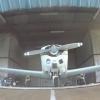Risk matrix
-
Members Online
- asaxet
- Scottknoll
- hammdo
- pkellercfii
- Andy95W
- alextstone
- spaceman39a
- Neshi
- Schllc
- Ian Morcott
- eman1200
- DonMuncy
- drstephensugiono
- boboxa9895
- Stealth Mooney
- toto
- jrwilson
- good2eat
- PeytonM
- jturuc
- Gee Bee Aeroproducts
- Grant_Waite
- cliffy
- Fritz1
- blaine beaven
- TCC
- takair
- KSMooniac
- Brian E.
- PT20J
- 1980Mooney
- Z W
- Marc_B
- PeteMc
- KLRDMD


Recommended Posts
Join the conversation
You can post now and register later. If you have an account, sign in now to post with your account.